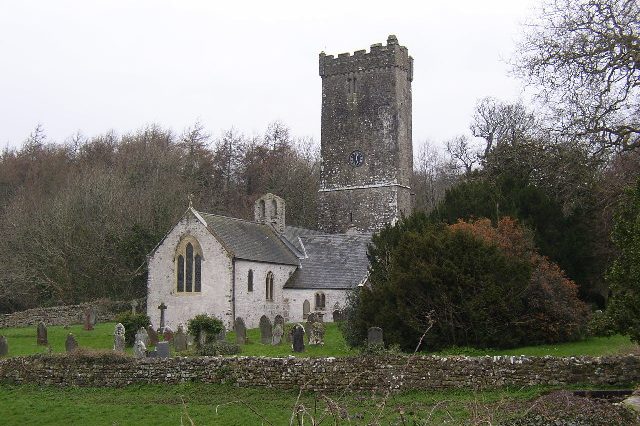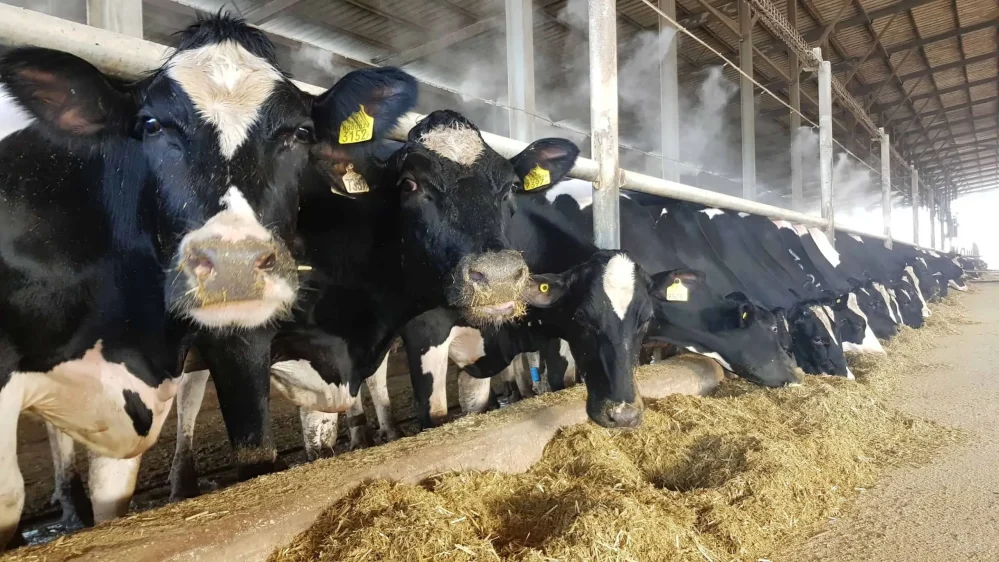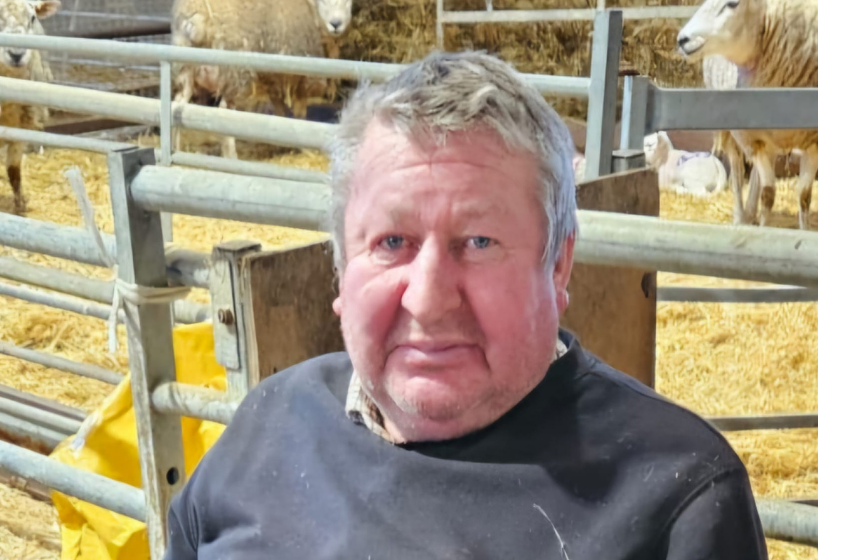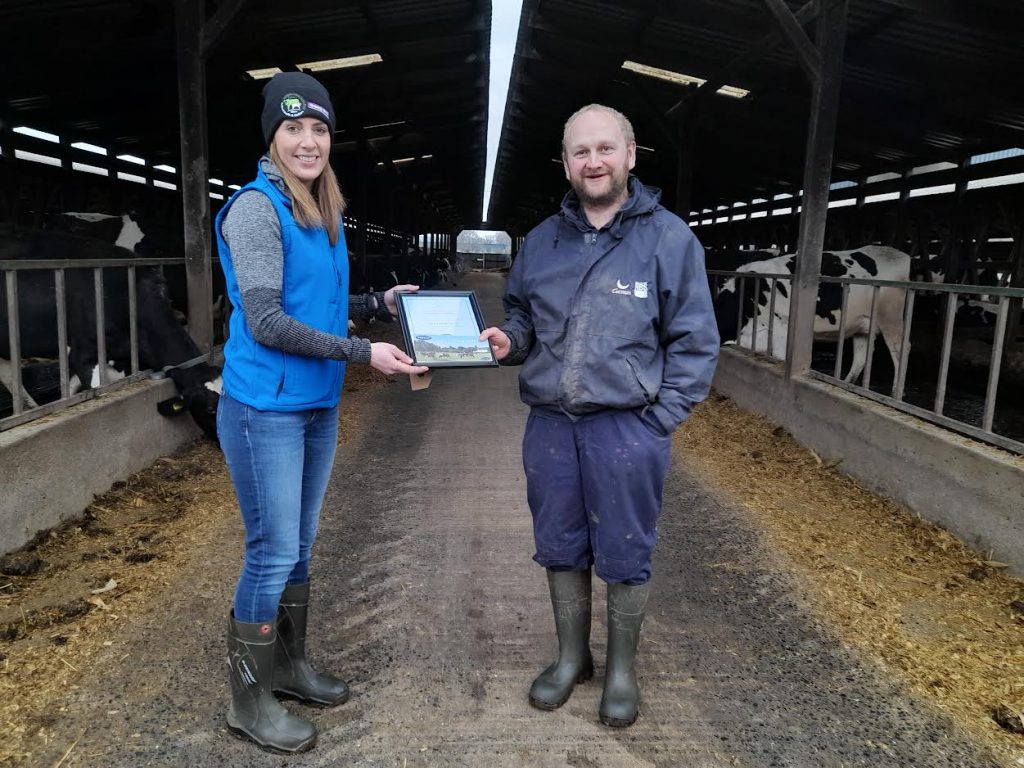Farming
North Pembrokeshire farmers top the FWGS Milk Hygiene Award on first time of entering

THIS year’s Federation of Welsh Grassland Societies over-all Milk Hygiene competition winners are JJ Peters & Son, Sunnyhill, Crundale, Haverfordwest, and this on their first time of entering the competition.
The competition, sponsored by Diversey is becoming a very sought after award, and this year’s competition was no exception. The judges John Griffiths, Coleg Sir Gar/Gelli Aur; and Michaela Rowlands, Diversey (Industry sponsors) both agreed that Sunnyhill are very worthy winners.
Initially they were presented with the Small producer award (up to one million litres per year) and then went on to win the main category for over-all Welsh winners.
The Large producer above 1million litres per year award goes to Jeff Evans, Broadmoor Farm, Wolfscastle; and the Most improved producer award goes to John Young Farms- Neuadd Farm- Abergavenny, members of Monmouth Grassland Society.
Competition Judges presented the following notes on each farm:
Overall Winner and Small herd category – JJ Peters & Son, Sunnyhill , Crundale, Haverfordwest
115 cow organic, closed herd. Mr Peters said they are the only organic dairy farm in Pembrokeshire. They set up selling milk through a Milk Vending Machine on the farm in August 2021 which included adding a pasteurising unit.
Mr & Mrs Peters are helped by their daughter Annie who is currently a Student at Gelli Aur College. She spends every spare minute she’s not in college or studying helping on the farm with managing the herd and processing the milk, as well as dealing with all of the social media marketing enquiries.
Currently less than 5% of the milk produced is sold through the vending machine. They also feed whole milk to rear the calves as powdered organic milk was prohibitively expensive. The rest of the milk goes to OMSCo.
They AI all cows- no bull on farm. Holstein type cows housed in cubicles over winter and out to grass the rest of the year. All year round calving & milk recording monthly. Average 7500lt/lactation. Currently under bTB restrictions.
Cluster flush system in the Herringbone 10/10 parlour with pre-milking teat dipping & post spraying with Deosan products.
Winner in the large producer above 1million litres category: Jeff Evans, Broadmoor Farm, Wolfscastle, Haverfordwest
220 cow closed herd milked through a Herringbone parlour. Milks for 10 months then dries off whole herd (Jan & Feb) anything that falls outside this window is sold/culled.
The farm does its own AI using sexed semen & has a beef bull to sweep up. Mr Evans mostly does all of the milking himself with the occasional relief milker coming in.
No cluster flush system- but does use pre-milking & post milking teat dipping with Deosan products- which he says has contributed greatly to reduced TBC & SCC & cows are happier with softer, not cracked teats.
Milk goes to First Milk for cheese. Cow type are Friesian with a bit of Jersey. Grass based, low input system. Av 5500lt /lactation.
Old buildings- cubicle housing. Cows turned out at calving in March. Currently under bTB restrictions. Jeff does not milk record but tests for Johnes 4 times a year.
Most Improved: John Young Farms- Neuadd Farm Abergavenny (Comparing the Quality of the first 6 months production against the last 6 months of the Quota year):
240 cow closed herd, milked through an unusual Trigon parlour (7 x 3). Block calving system, using Genus ABS RMS package for heat detection and serving cows. Average yield is around 9,500lt. Large Holstein type cows. Cows are housed in winter in wooden cubicles with sand bedding which Ben Young says contributed to his lower SCC & TCB. The farm is rented. Currently free of BTB.
FWGS secretary Charlie Morgan said celebrating the achievements of the very best in Welsh farming would inspire others to raise the bar for the whole industry. “I would like to take this opportunity to pay tribute to the judges who had travelled to visit the competitors to see these farms first hand. The COVID 19 pandemic has impacted greatly but our farmers continue to produce at very high standards’’.
Margaret Peters from JJ Peters and Sons said:
“We are delighted to have won the award in our first year of entering! … Six months ago, we opened a milk vending machine on our farm yard, selling our pasteurised organic milk to the general public. We are very proud on winning this award, which will obviously be excellent publicity to support and promote the quality of our milk”.
For further details on the enterprise you can follow them on Facebook / Instagram – @sunnyhillfarmdairy.
Farming
Farm building scheme near Lawrenny given go-ahead by planners

AN APPLICATION for a storage building at a south Pembrokeshire farm, made by a family member of an officer on Pembrokeshire County Council’s planning service, has been given the go-ahead by the authority’s planning committee.
In an application recommended for approval at the July 23 meeting of the authority’s planning committee, Laura Elliot sought permission for the erection of an agricultural storage building at Tedion Farm, a dairy farm near Lawrenny.
The application had been brought to committee, rather than being delegated to planning officers, due to the family connection.
The farm, near to the Pembrokeshire coast National Park border, comprises 270 milking cows and dairy heifer replacements kept on the farm comprising land over 138 hectares. The farm is mainly down to grass and the cows are paddock grazed in order to utilise grass efficiency.
No objections had been received from local community council Martletwy.
A report for members said: “The application seeks consent for the erection of agricultural storage building. The erection of an agricultural building will be used to store stay, hay and farm machinery.
“The building would be located within the existing farm complex, to the north-east of the site, adjacent to the main farm dwelling. The building will measure 18 metres in length by 13.6 metres in width, with a pitched roof height of 5.71 metres.”
Approval was moved by Cllr Alistair Cameron, seconded by Cllr Brian Hall.
Farming
Fears dairy farm near Kilgetty could increase to 3,000 cattle

PEMBROKESHIRE planners are to visit the site of one of the county’s largest dairy farms after claims were raised a scheme for new calf buildings could lead to animal welfare issues and an increase in the size of the herd to 3,000 cattle.
At the July 23 meeting of the council’s planning committee, an application by Hugh James of Langdon Mill Farms Ltd for a calf building, weaned calf building, and associated yard areas, at Langdon Mill Farm, near Jeffreyston, Kilgetty was recommended for conditional approval.
Local community council Jeffreyston has raised concerns, made by a member of the public, on potential increased noise and odour from the scheme, planners heard.
A supporting statement, through agent Reading Agricultural Consultants, said: “The holding currently has a milking herd of approximately 2,000 cows, which are housed indoors for the majority of the year, with dry cows [cows that are not lactating, prior to calving] and heifers grazed outdoors when weather and soil conditions permit.
“There has been significant investment in buildings and infrastructure at the farm over the last decade in respect of cattle accommodation, slurry storage, milking facilities, Anaerobic Digestion (AD) plant and feed storage. The unit is efficient, achieving yields of more than 10,000 litres/cow/year, with cows being milked three times/day in the 60-point rotary parlour.”
Currently, calves are reared at Langdon Mill Farm for two months before being transported off-site to be reared at a number of third-party farms in the area before being return later; the proposed 61.2m long calf building is required to accommodate young-stock, following separation from the cows, to two-months, with the 164.8m weaned calf building to be used for calves from two months to seven months.
The application says the proposals would “clearly make the enterprise more financially robust by reducing reliance on third party farms”.
However, concerns were raised at the committee meeting by objector Ian Dennis, a former vet of some four decades’ experience, who described Langdon as occupying 3,000 acres of land with 2,000 cattle currently that “are never allowed to graze,” the proposal, he said, would add another 1,000 cattle to the site.
“This is factory farming, an intensive livestock unit, no longer a farm.”
He told planners a “mendacious and incorrect” ammonia emission report submitted by the applicants was “designed to bamboozle,” saying, despite his experience and scientific background, he needed expert support to assess.
He said only average figures were reported, rather than peaks and troughs, adding the “fictitious anaerobic digestion plant” had yet to be built, with planning permission now lapsed.
However, officers told members the applicant’s agent had said works on the digestor had actually started.
On the issue of animal welfare, Mr Dennis said he had “very huge concerns” about the scale of the development, differing from a planning officer report saying the scheme would bring animal welfare benefits.
A suggestion by committee chair Cllr Simon Hancock the application be deferred pending a site visit was unanimously backed by committee members present.
Farming
Family pay tribute to farmer, 65, who died in quadbike accident

A WEST WALES farmer has died after an incident involving a quadbike.
Dyfed-Powys Police have confirmed they attended a report of an incident involving an agricultural quadbike in a field in the Llanilar area of Aberystwyth on July 17.
The force has confirmed that a 65-year-old man died at the scene.
They said that his next of kin have been advised and are being supported by specialist officers. The HM Coroner and Health and Safety Executives have been informed.
His family have paid tribute to him. The family said: “Hugh Tudor was a 65 year old farmer who had farmed at Tynberllan, Llanilar with his wife Ann for over 40 years. He was a devoted father to Sara, Lowri and the late Gwenno.
“Hugh was the son of the late Tom and Sybil Tudor of Glanystwyth and brother to Richard.
“Farming was his life, but he also had a wide range of interests and was actively involved in all aspects of the local community in Llanilar and beyond.
“We would like to thank everybody for their support and kindness during this difficult time.”
-

 Education5 days ago
Education5 days agoMilford Tesco worker achieves Oxford dream and lands top legal job
-

 Crime4 days ago
Crime4 days agoHaverfordwest man admits having nearly 1000 child and animal images
-

 Crime4 days ago
Crime4 days agoYouth set to appear in court over serious sexual offences
-

 Crime4 days ago
Crime4 days agoPolice investigating after man injured during altercation in cemetery
-

 Education4 days ago
Education4 days agoPupils delight in ice cream treat from Pembrokeshire’s number one van
-

 Crime4 days ago
Crime4 days agoTown centre ‘stinking of skunk’ as police strip cannabis farm
-

 Crime3 days ago
Crime3 days agoFag-butt police court summonses spark debate in Pembrokeshire
-

 News6 days ago
News6 days agoProposal to give firefighters a council tax discount to go to Cabinet































